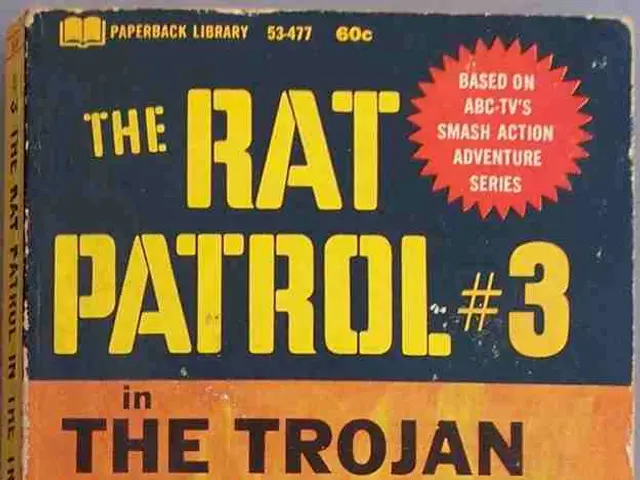TARIFF WORRIES FLOOR STELLANTIS
Stellantis Temporarily Halts Full-Year Projections Due to 'Tariff-Linked Uncertainty'
Take a seat, peeps! Stellantis, the automaker behind your fave brands like Jeep and Chrysler, has hit the brakes on its full-year expectations. Why. you ask? Tariff-related uncertainties, of course!
The "Big Three" automaker is the latest in the industry to take a tumble due to President Donald Trump's tariffs. General Motors already took a hike when it left its 2025 guidance in the dust yesterday, citing the potential impact of tariffs.
Stellantis has taken a dip too, losing over a quarter of its value this year. Its shares slid 3% in intraday trading yesterday.
Under the current situation, imported vehicles face a whopping 25% levy, but some relief was in sight on Tuesday. The Trump administration eased some auto tariffs, stating that the duty remains, but foreign vehicles won't bear other levies like the 25% tax on steel and aluminum imports.
Stellantis is working with governments on tariff policies and is taking steps to cushion the blow. They're adjusting production plans and seeking opportunities for improved sourcing. Their first-quarter revenue took a hit, falling 14% year-over-year to 35.8 billion euros ($40.7 billion) due to reduced shipment volumes, adverse mix, and pricing issues.
Updates on share prices have been refreshed as of early April 2025.
HOLDING STEADY: THE CURRENT STATE OF TARIFFS ON IMPORTED VEHICLES
As things stand in April 2025, the U.S. has clamped down on imported vehicles and auto parts with a 25% tariff on automobiles in effect since April 3. Tariffs on auto parts are slated to kick in on or after May 3. This tariff system is designed to address national security concerns related to these imports.
FEELING THE PINCH: AUTOMAKERS AND TARIFFS
- The Big Picture: Tariffs are deal breakers for automakers, as they push up costs for vehicles and parts imported into the U.S. However, recent actions are aimed at cutting these costs by eliminating additional tariffs on essential materials like steel and aluminum for domestic producers.
- Stellantis: Stellantis, with brands like Chrysler, Dodge, Jeep, and Ram, appreciates the recent tariff relief measures and anticipates continued collaboration with the U.S. administration to solidify the American auto industry.
- GM and Ford: While specifics from these players are slim at the moment, they, too, could reap the benefits of relief measures similar to Stellantis, thanks to cost reductions from the relaxation of tariffs on steel and aluminum.
MOVING FORWARD: RECENT DEVELOPMENTS AND RELIEF MEASURES
- Softening the Blow: The Trump administration is giving automakers a break by removing additional tariffs on steel and aluminum imports. This move aims to help companies that invest in domestic manufacturing while inspiring others to follow suit.
- Reimbursement: Automakers who have already paid the double tariffs on these materials will receive refunds, alleviating some of the financial strain tied to tariffs.
These measures are geared toward boosting domestic production and re-energizing the U.S. auto industry while maintaining a firm stance on imported vehicle and parts tariffs.
- Stellantis, in an attempt to mitigate the impact of tariffs, is adjusting its production plans and exploring opportunities for improved sourcing.
- As a result of tariffs-related uncertainties, Stellantis has temporarily suspended its full-year expectations, joining industry peers like General Motors who have also been affected.
- In a bid to cushion the blow, Stellantis is collaborating with governments on tariff policies to ensure a stronger outlook for the automobile industry's finance and business.
- Although the U.S. government has imposed a 25% tariff on imported vehicles, relief measures are being implemented to cut costs for automakers, such as eliminating additional tariffs on essential materials like steel and aluminum.
- The relaxation of these tariffs could lead to cost reductions for other major automakers like GM and Ford, potentially improving their liquidity and trading prospects.
- The industry as a whole is closely monitoring the outlook of tariffs on imported vehicles and auto parts, as it could significantly affect operational processes, token (currency or security) valuations, and overall industry growth.




